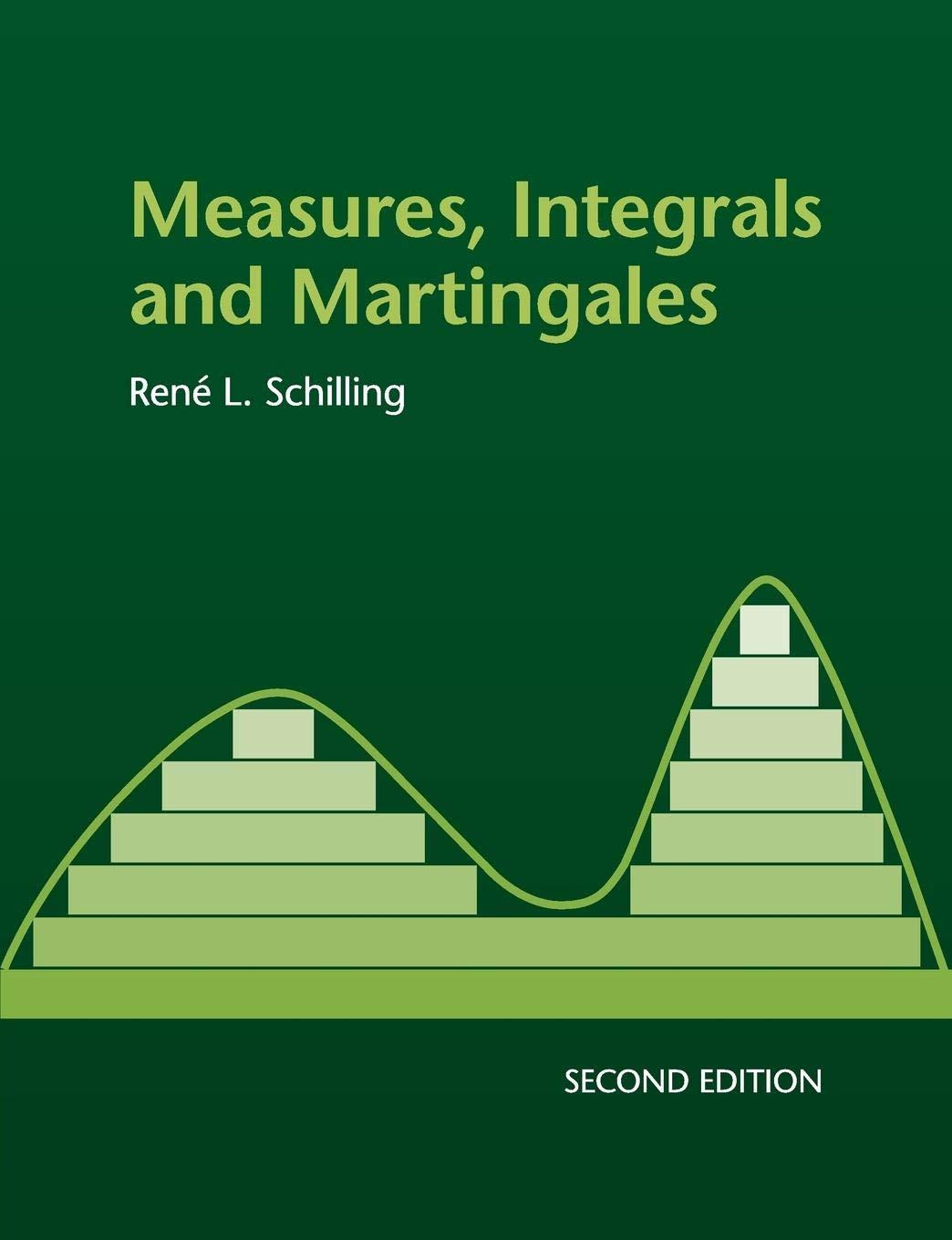Let ((X, mathscr{A}, mu)) be a finite measure space and (u in mathcal{M}(mathscr{A})) be a bounded function
Question:
Let \((X, \mathscr{A}, \mu)\) be a finite measure space and \(u \in \mathcal{M}(\mathscr{A})\) be a bounded function with \(\|u\|_{\infty}>0\). Prove that for all \(n \in \mathbb{N}\)
(i) \(M_{n}:=\int|u|^{n} d \mu \in(0, \infty)\);
(ii) \(M_{n+1} M_{n-1} \geqslant M_{n}^{2}\);
(iii) \(\mu(X)^{-1 / n}\|u\|_{n} \leqslant M_{n+1} / M_{n} \leqslant\|u\|_{\infty}\);
(iv) \(\lim _{n ightarrow \infty} M_{n+1} / M_{n}=\|u\|_{\infty}\).
[for (ii) use Hölder's inequality; for (iii) use Jensen's inequality for the lower estimate and use Hölder's inequality for the upper estimate; and for (iv) observe that \(\int u^{n} d \mu \geqslant \int_{\left\{u>\|u\|_{\infty}-\epsilonight\}}\left(\|u\|_{\infty}-\epsilonight)^{n} d \mu=\mu\left\{u>\|u\|_{\infty}-\epsilonight\}\left(\|u\|_{\infty}-\epsilonight)^{n}\), take the \(n\)th root
Step by Step Answer:






